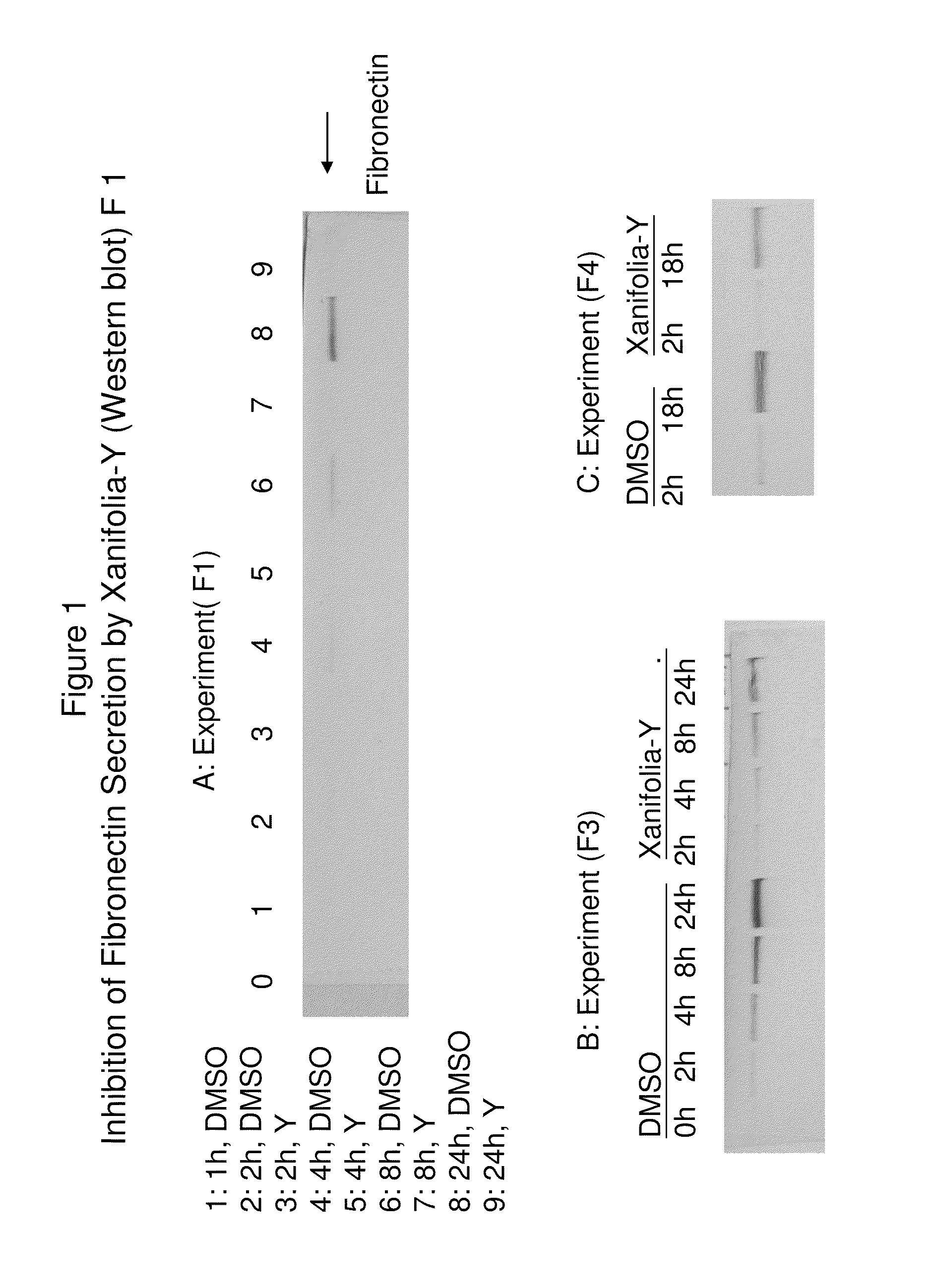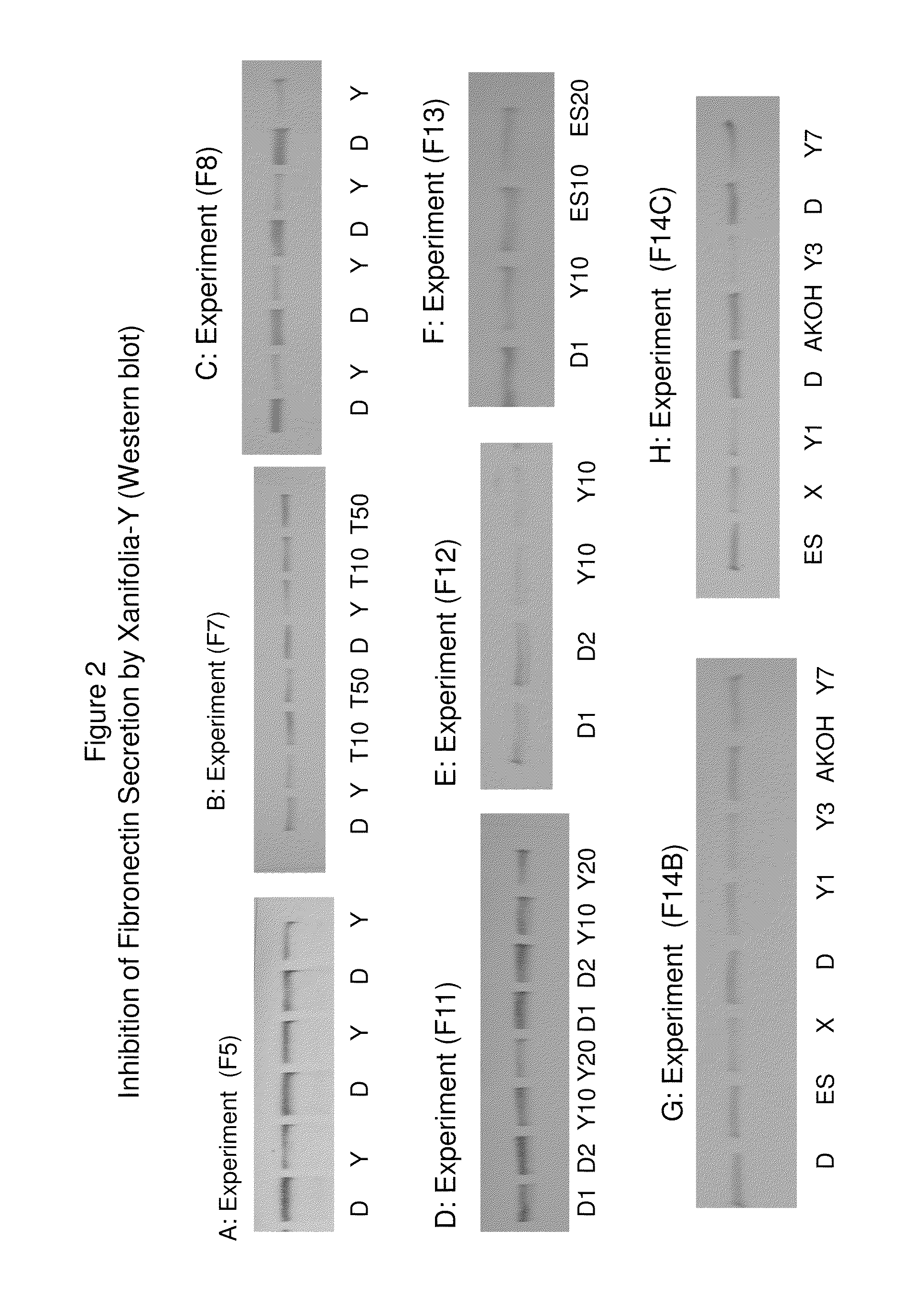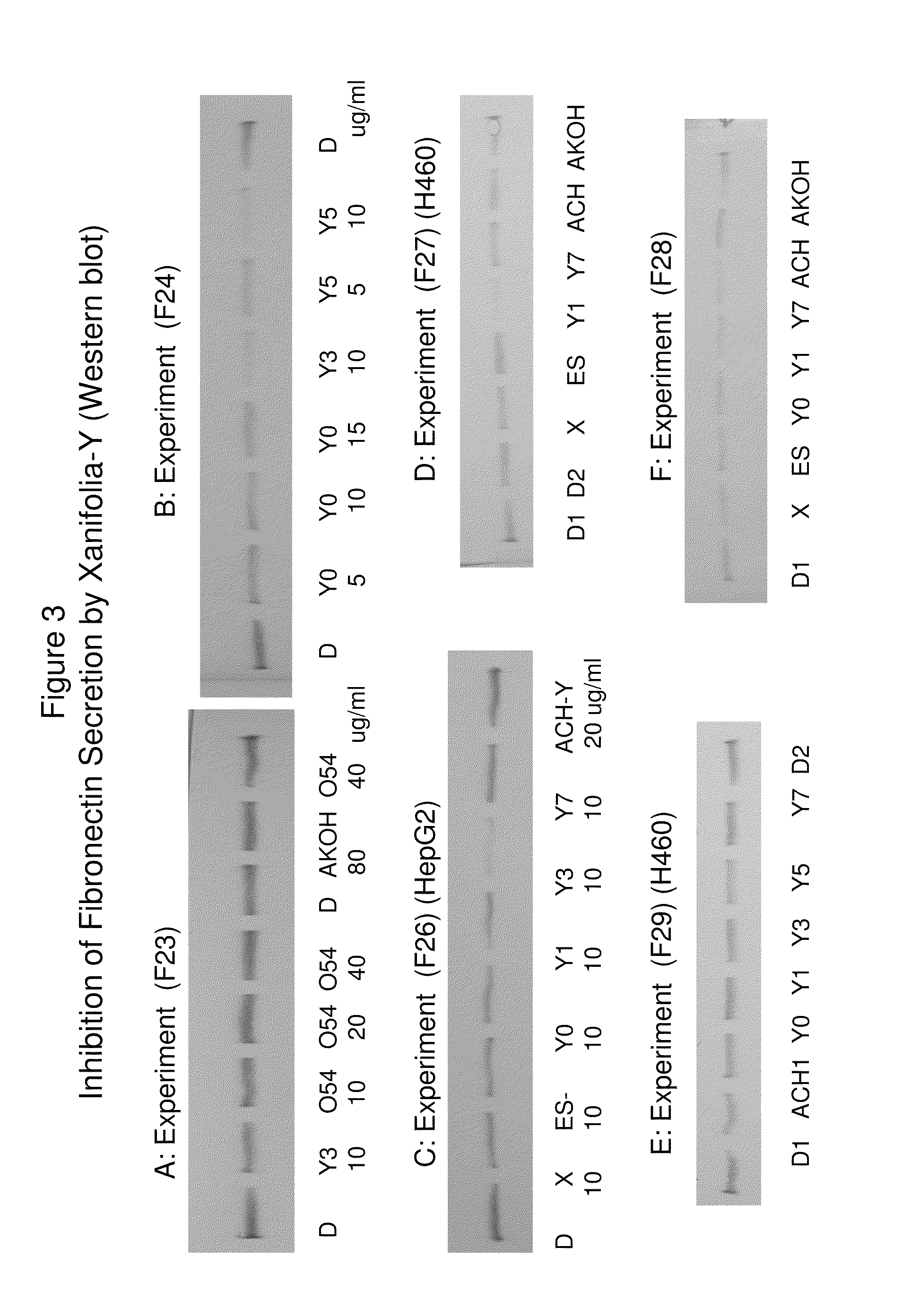Blocking the migration or metastasis of cancer cells by affecting adhesion proteins and the uses of new compounds thereof
a technology of adhesion protein and cancer cell, which is applied in the direction of organic chemistry, biocide, chemistry apparatus and processes, etc., can solve the problems of not being able to prevent the genesis of metastatic cancer, and achieve the effects of inhibiting the expression of adhesion proteins, reducing the secretion of fibronectin, and reducing the adhesion protein in cells
- Summary
- Abstract
- Description
- Claims
- Application Information
AI Technical Summary
Benefits of technology
Problems solved by technology
Method used
Image
Examples
experiment 1
Analysis of Gene Expression of ES2 Cells after Y-treatment by Microarray
[0375]In this invention, the microarray experiments were done in studying the gene expression. Total number of 54676 genes has been studied.
[0376]Cell culture and drug-treatment.: ES2 cells were seeded in a T-25 flask with 4.5 million cells per flask for 24 hours. Cell culture was replaced with fresh medium with xanifolia-Y (Y) or DMSO no drug control (D) for 24 hours. Cells were then harvested for RNA isolation. Three experiments were done.
[0377]RNA extraction, labeling, hybridization, and data analysis. RNA was extracted from tumor cells using the Qiagen RNeasy Kit. RNA quality and quantity was checked by the Agilent BioAnalyzer and the NanoDrop® ND-1000 spectrophotometer respectively before further manipulation. The first and second cDNA strands were synthesized from 20 ng of total RNA using the Affymetrix T7 oligo(dT) primer protocol and kit for the two-cycle amplification. To produce amplified biotin-labele...
experiment 2 (
F1)
Methods:
[0382]Cells: ES2 cells were grew in T-25 flask with RPMI 1640 medium over night before drug-treatment. Drug-treatment: cells cultures were replaced with fresh RPMI medium with Xanifolia-Y (10 ug / ml final concentration) or DMSO (as control) at 0 hour. At 1, 2, 4, 8 and 24 hour, aliquot of culture medium was taken out for Fibronectin determination. Fibronectin was determined by Western blot with monoclonal antibody (SIGMA) specific to human Fibronectin only.
[0383]Results (also see FIG. 1):[0384]1. Cells treated with DMSO (as no drug control) secret Fibronectin to medium and the amount of Fibronectin accumulated with time. There is no or only minimally secretion of Fibronectin observed in cell culture treated with Xanifolia-Y.[0385]2. For controls, Fibronectin immunoband was not observed in RPMI medium with fetal bovine serum, or employing the normal mouse serum (NS1).
experiment 3 (
F3)
Methods:
[0386]Cells: ES2 cells were grew in RPMI 1640 medium over night before drug-treatment. Drug-treatment: cells cultures were replaced with fresh RPMI medium containing Xanifolia-Y (10 ug / ml final concentration) or DMSO (as control) at 0 hour. At 4 hours (A) or 8 hour (B), culture medium was replaced with fresh culture medium without drug. At 2, 4, 8 and 24 hour, aliquot of culture medium was taken out for Fibronectin determination. Fibronectin (FN) was determined by Western blot with monoclonal antibody (SIGMA) specific only to human Fibronectin.
[0387]Results (also see FIG. 2):[0388](1) Compare the control and Y-treated cells before drug removal (at 4 and 8 hours), there is a reduction of FN secretion from Y-treated cells. There is no obvious cell morphology change during these times, suggesting cells are alive.[0389](2) Compare the control and Y-treated cells after the removal of drug at 24 hours, it was estimated that secretion of FN from Y-treated cells was reduced to ov...
PUM
| Property | Measurement | Unit |
|---|---|---|
| concentration | aaaaa | aaaaa |
| concentration | aaaaa | aaaaa |
| concentration | aaaaa | aaaaa |
Abstract
Description
Claims
Application Information
 Login to View More
Login to View More - R&D
- Intellectual Property
- Life Sciences
- Materials
- Tech Scout
- Unparalleled Data Quality
- Higher Quality Content
- 60% Fewer Hallucinations
Browse by: Latest US Patents, China's latest patents, Technical Efficacy Thesaurus, Application Domain, Technology Topic, Popular Technical Reports.
© 2025 PatSnap. All rights reserved.Legal|Privacy policy|Modern Slavery Act Transparency Statement|Sitemap|About US| Contact US: help@patsnap.com



